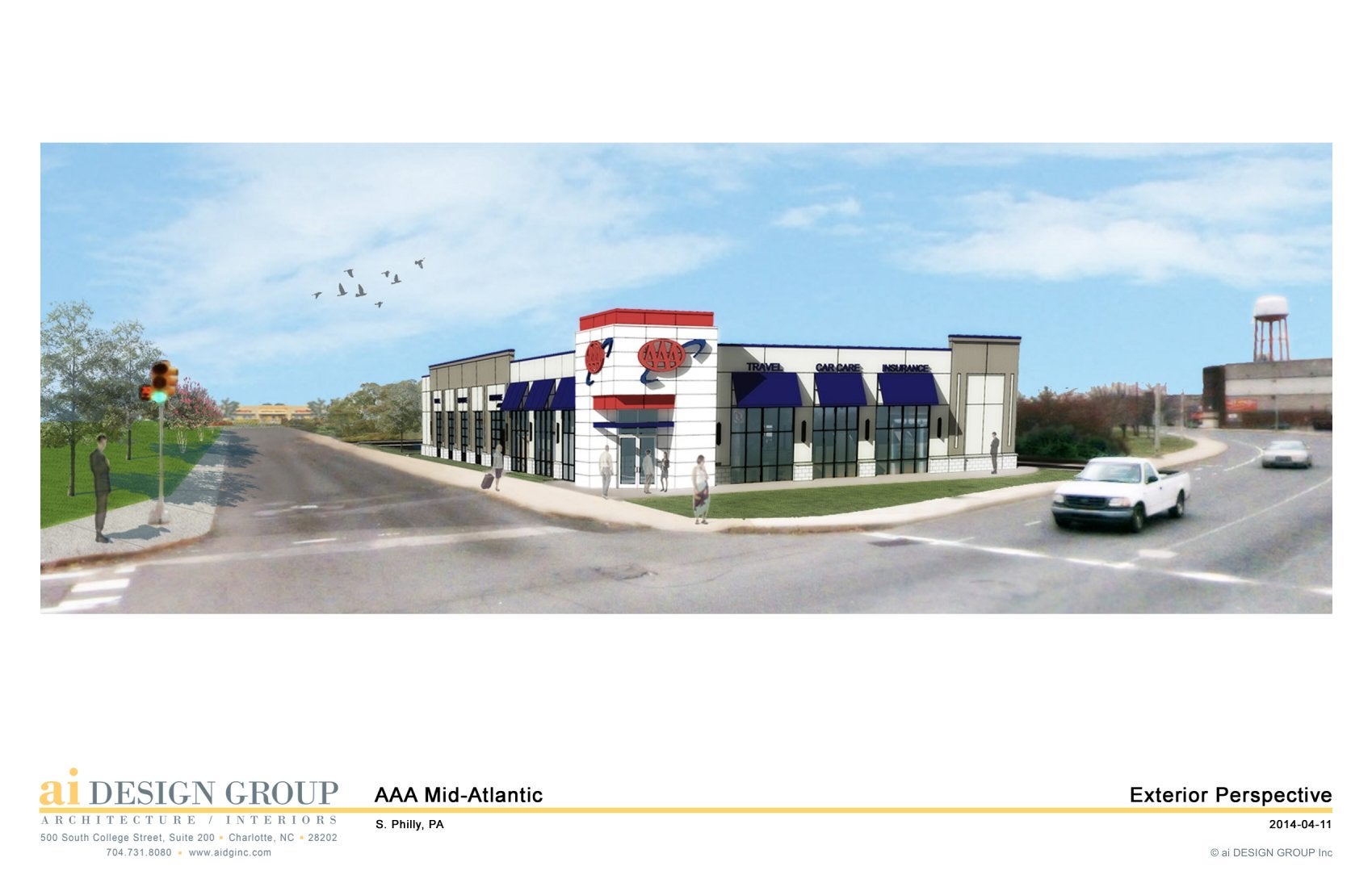Court hears arguments about AAA auto-repair facility on the Delaware waterfront

Philadelphia’s Court of Common Pleas heard arguments on Friday regarding the development of a controversial AAA auto-repair facility on the Delaware River waterfront.
The proposal is controversial because the master plan for the Central Delaware, which was codified in a zoning overlay two years ago, aims to encourage pedestrian- and bike-friendly uses on the waterfront and discourage car-oriented ones. AAA applied for a permit to build the facility one day before the new zoning overlay, under which it would be prohibited, went into effect. L&I initially issued a permit many months later, but rescinded it shortly thereafter because the developers had failed to go through a Plan of Development review at the City Planning Commission.
When they finally did go for the review, the Planning Commission denied their application. AAA appealed that decision, and that appeal was before the Court on Friday.
Carl Primavera, a veteran Philadelphia land-use lawyer representing AAA, argued first.
At the time the application was filed, Primavera said, the property, at Columbus Boulevard and Tasker Street, was zoned industrial, and the proposed uses were permitted in that category. What’s more, the interim overlay that was in place at the time listed a number of prohibited uses on the waterfront, but didn’t explicitly ban any of the uses proposed by AAA. So, the proposal was permitted in the underlying zoning and not prohibited in the overlay that was in place.
Primavera said that when the Planning Commission undertook its Plan of Development review, it shouldn’t have weighed in on whether the use was appropriate for the site. The code should dictate that, and the Planning Commission should focus on making the development as “handsome” as possible. But, he said, the Commission decided to reject the application because it wouldn’t have been allowed under the new overlay. That was an “ultra vires” decision, beyond the Commission’s legal authority. The Court should overturn the decision or remand it to the Commission for reconsideration.
“That was very interesting,” said Andy Ross, a city solicitor representing the Planning Commission. “Most of it had nothing to do with the case.”
The reason the interim overlay required a Plan of Development review by the Planning Commission was because City Council wanted the Commission to monitor new uses on the waterfront while the new overlay was being worked out. The Commission’s review was supposed to be based on the principles of the civic vision engineered by PennPraxis over a period of years. Those principles discourage automotive uses on the waterfront.
If AAA didn’t want to submit to the Planning Commission’s review, it could have waited a day and applied for its permit under the new overlay, which would have generated a refusal from L&I. Council’s intention with the interim overlay was to start the process of transforming the waterfront, over a period of many decades, into a vibrant, pedestrian-oriented place. The interim ordinance didn’t codify every element of that plan, but entrusted the Planning Commission to make the right determination based on those principles. The Commission’s decision wasn’t based on the law that hadn’t taken effect yet, Ross argued.
Judge Nina Wright Padilla of the Court of Common Pleas thanked the attorneys for their “educational” arguments. She said she’d take them under advisement and come back with a decision.
PlanPhilly will update you when they do. Meanwhile, AAA has actually started construction, signaling that it’s confident the law is on its side.
WHYY is your source for fact-based, in-depth journalism and information. As a nonprofit organization, we rely on financial support from readers like you. Please give today.



